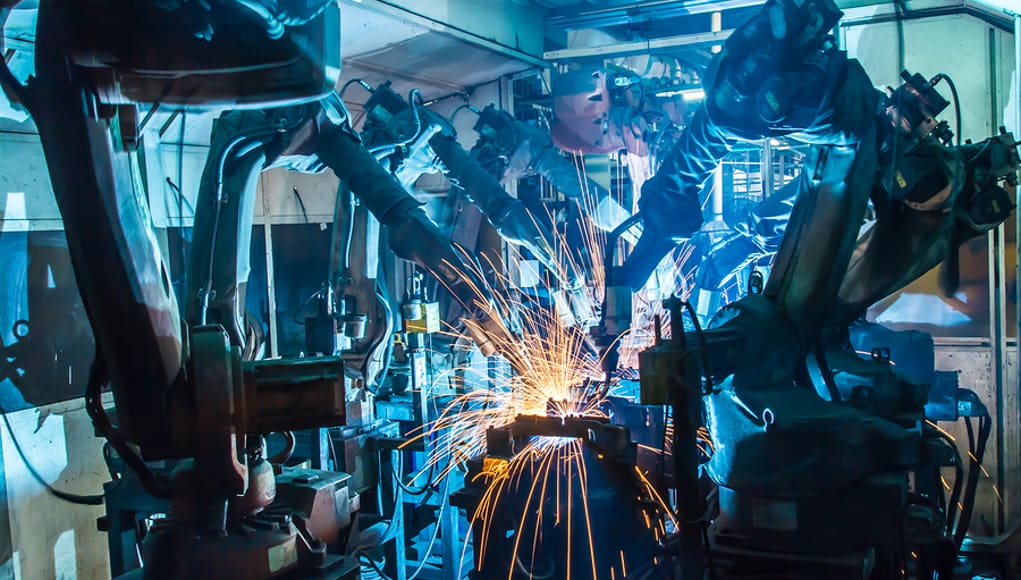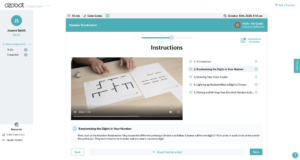Staying Ahead of the Robots: What Grads Should Know and Be Able To Do

We try to avoid hyperbole when it comes to technology impacts–both good and bad–but when a group of really smart people paints a gloomy picture, it’s worth a look. A recent Pew report on the future of jobs concluded:
Machines are eating humans’ job talents. And it’s not just about jobs that are repetitive and low-skill. Automation, robotics, algorithms and artificial intelligence (AI) in recent times have shown they can do equal or sometimes even better work than humans who are dermatologists, insurance claims adjusters, lawyers, seismic testers in oil fields, sports journalists and financial reporters, crew members on guided-missile destroyers, hiring managers, psychological testers, retail salespeople, and border patrol agents. Moreover, there is growing anxiety that technology developments on the near horizon will crush the jobs of the millions who drive cars and trucks, analyze medical tests and data, perform middle management chores, dispense medicine, trade stocks and evaluate markets, fight on battlefields, perform government functions, and even replace those who program software – that is, the creators of algorithms.
This automation economy is changing the employment landscape, making it a good time to reconsider the purpose and goals of public education. Let’s start with a quick review of leading outcome frameworks, both comprehensive and directional/ partial.
The most current and comprehensive of the outcome frameworks is MyWays from Next Generation Learning Challenges (NGLC). The twenty MyWays competencies provide a framework for next generation learning and reflect current research in education, workforce and human development and include habits of success and navigational skills. They line up pretty well with Tony Wagner’s 7 Survival Skills and Deeper Learning competencies from Hewlett Foundation.
| NGLC MyWays | Tony Wagner | Deeper Learning | CASEL | E&Y 2020 |
| Critical thinking & problem solving | Critical thinking & problem-solving | Learning how to think critically and solve problems | Complex problem solving, critical thinking | |
| Creativity & entrepreneurship | Curiosity, & imagination | Creativity | Creativity | |
| Developing personal relationships | Collaboration across networks, leading by influence | Working collaboratively | Social awareness | People management, coordination |
| Social skills & responsibility | Relationship skills | Emotional intelligence | ||
| Navigating each step of the journey | Assessing & analyzing info | Decision making | Judgement, decision making | |
| Positive mindsets | Initiative & entrepreneurship | Developing an academic mindset | Self-awareness | Service orientation |
| Academic behaviors | Agility & adaptability | Negotiation, cognitive flexibility | ||
| Communication & collaboration | Oral & written communication | Communicating effectively | ||
| Self-direction & perseverance; learning strategies | Directing one’s own learning | Self-management | ||
| Content & global knowledge | Mastering rigorous academic content | |||
| Info, media & tech; career tech & practical skills |
It’s worth noting the high level of agreement around the importance of self and social awareness, the ability to collaborate and navigate. The comprehensive frameworks nod at content knowledge but clearly prioritize skills and dispositions. Only MyWays mentions career skills (where we’d include project management, for example).
As discussed in June in a review of SEL frameworks, the MyWays Community of Practice is as much about shared mindsets as practices. The mindset shifts involved in design learning, assessment, school operating habits and community culture around a broader, deeper definition of student success include:
- Honor agency: Educators who have a mindset that honors agency avoid delivering content and products and instead encourage creation and deep engagement, for their students and themselves.
- Hold the whole: Educators who have a mindset that “holds the whole” recognize that human development is interconnected; learning is personal, social and interdisciplinary; and assessment is a dialogue.
- Invite the community: Educators who have a mindset that invites the community value the insights of students, parents, teachers, and partners about the kind of community they want and the local resources available to help students build it.
- Embrace change: Educators who have a mindset that embraces change focus on continuously adjusting and improving their students’ learning experience to life’s changing realities.
- Risk vulnerability: Educators who have a mindset that risks vulnerability are open to the stumbles, hiccups and the joys of their own learning and the learning of students.
I find the NGLC description of educator mindsets beautifully articulated, wholly appropriate for students as well as teachers, and profound in implication (and a big contrast to a noted EdPolicy advocate who last week said, “Let’s just stick to reading, writing and math.”).
In April, we spoke with Ken Kay of EdLeader21 about their new site, Profile of a Graduate, which contains a gallery of examples of outcome frameworks and guidelines for updating your graduate profile.
Survey Says
The outcome framework discussed above are largely based on rearview mirror analysis. A new crop of surveys attempts what skills and dispositions are likely to be important in the future.
Each new age results in a shift in value creation. The rise of artificial intelligence (AI)–code that can learn and act based on observed patterns in data sets–is driving a new shift in value “with a focus on sentiments more intrinsic to the human experience: thinking, creativity and problem-solving.” That’s the conclusion of a new PwC report.
Pew Research Center surveyed technologists, scholars, practitioners, strategic thinkers and education leaders in the summer of 2016, asking them to weigh in on the likely future of workplace training. The experts predicted that the education marketplace will continue to diversity with increased emphasis on teaching people how to be lifelong learners.
Many Pew respondents pointed to human talents less likely to be automated anytime soon–creativity, collaboration, abstract and systems thinking, complex communication, and the ability to thrive in diverse environments. Jonathan Grudin, principle researcher at Microsoft, suggests adding entrepreneurship to that list. “People will create the jobs of the future, not simply train for them, and technology is already central,” Grudin said. “It will undoubtedly play a greater role in the years ahead.”
The five themes emerging from the Pew research are shown below:
 At a recent convening we hosted with Hewlett, participants outlined new learning priorities in five categories (with a bunch of overlap):
At a recent convening we hosted with Hewlett, participants outlined new learning priorities in five categories (with a bunch of overlap):
- Social and Emotional Learning. Understand and manage emotions, set and achieve positive goals, feel and show empathy for others, establish and maintain positive relationships, and make responsible decisions (CASEL)
- Deeper Learning. Mastering rigorous academic content, learning how to think critically and solve problems, working collaboratively, communicating effectively, directing one’s own learning, and developing an academic mindset — a belief in one’s ability to grow (Hewlett). Friendly amendments on curiosity and creative confidence
- Computational and Design Thinking. Building empathy, testing assumptions, prototyping, (check out this podcast with IDEO on design thinking as core pedagogy in schools)
- Financial and Entrepreneurial Literacy. Basics of personal finance and starting, capitalizing and scaling a business.
- Expressing Ideas (after exploring complex dimensions). Visual and performing arts, philosophy, debate and writing.
The MyWays framework holds up pretty well to these new inputs. We’d underscore the importance of:
- Design thinking, data wrangling and project management as core job skills
- Entrepreneurship as core knowledge, skills and mindset
It’s a good time to hold a community conversation about what graduates should know and be able to do. Use these outcome frameworks, especially MyWays, as a template and then focus on the kinds of experiences and environments will really produce those outcomes.
Our #AskAboutAI campaign investigates the implications of AI on employment, education and ethics. For more, visit our series page and see:
- It’s Time to Update Your Graduate Profile – Here’s How
- PwC Report: AI Boosts Value of Thinking, Creativity and Problem-Solving








0 Comments
Leave a Comment
Your email address will not be published. All fields are required.